We are proud to present Sung Tieu’s second solo exhibition in our Hamburg space. Continuing her exploration of psychological and bureaucratic warfare, Tieu closely examines the impacts of arbitrary policies under state rules, exposing how such norms, standards, and linguistic alterations were imposed to reshape the value systems of entire populations.
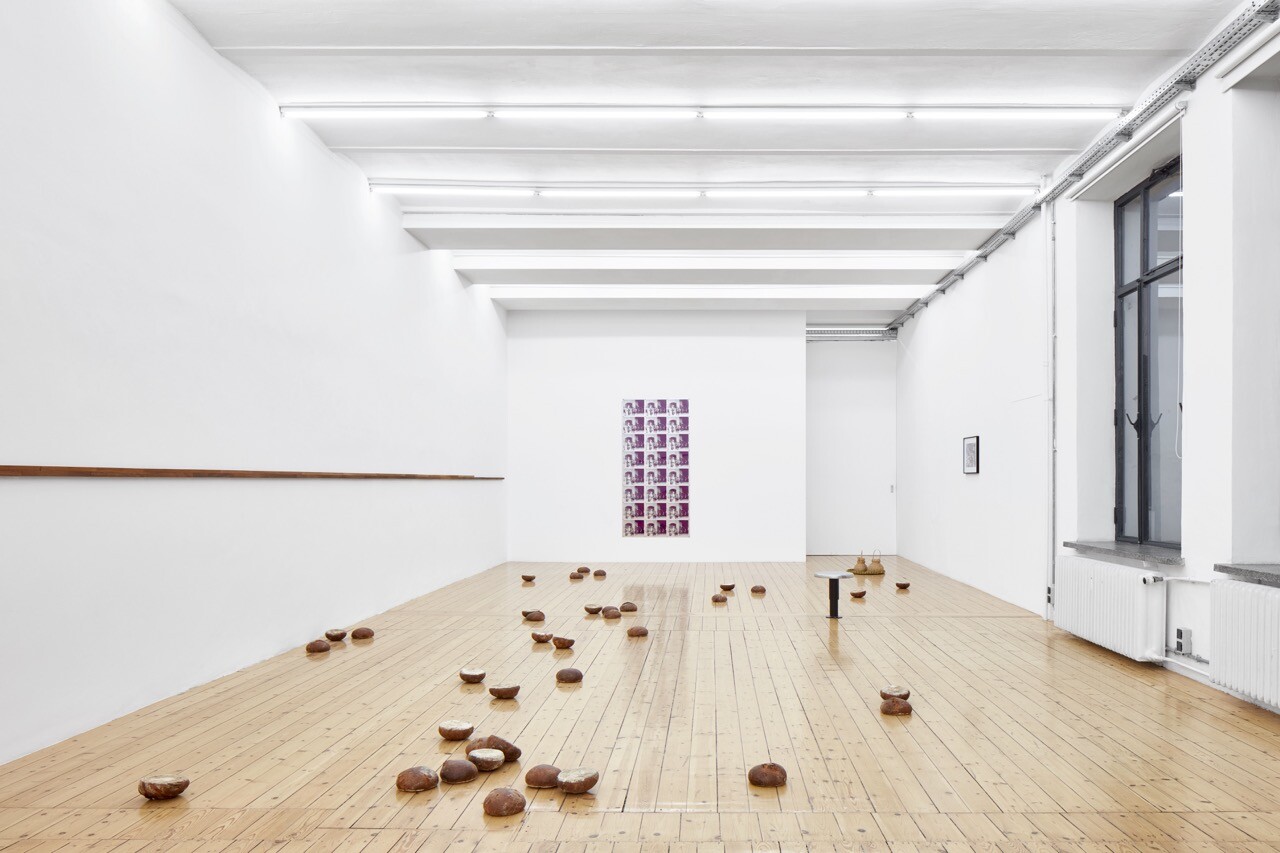
The exhibition revisits French Indochina — a colony that included present-day Vietnam, Laos, and Cambodia — to investigate how France exported the concept of “la civilisation française” by enforcing laws that favoured French economic and political interests, under the guise of “civilizing” the world.
In 1897, then-Governor-General Paul Doumer (later President of France) decreed the replacement of traditional units of land measurement, the thước đo đất or điền xích, with the metric system. This change was more than a simple conversion: the base unit was altered from a length equivalent to 47 cm to 40 cm, effectively benefiting colonial administration.
The Ruling, a central installation, lines the gallery walls with multiple wooden rulers comparing the dimensions of the space in both measurement systems. The upper rulers, 40 cm in length, include statistics about French colonial rule in Indochina, while the lower rulers represent the traditional measurement unit, in điền xích, equalling 47 cm. The works underscore the loss of an ancient system and highlights how colonial authorities exploited the 15% discrepancy in unit measurement, inflating land sizes and, in turn, taxes on local farmers.
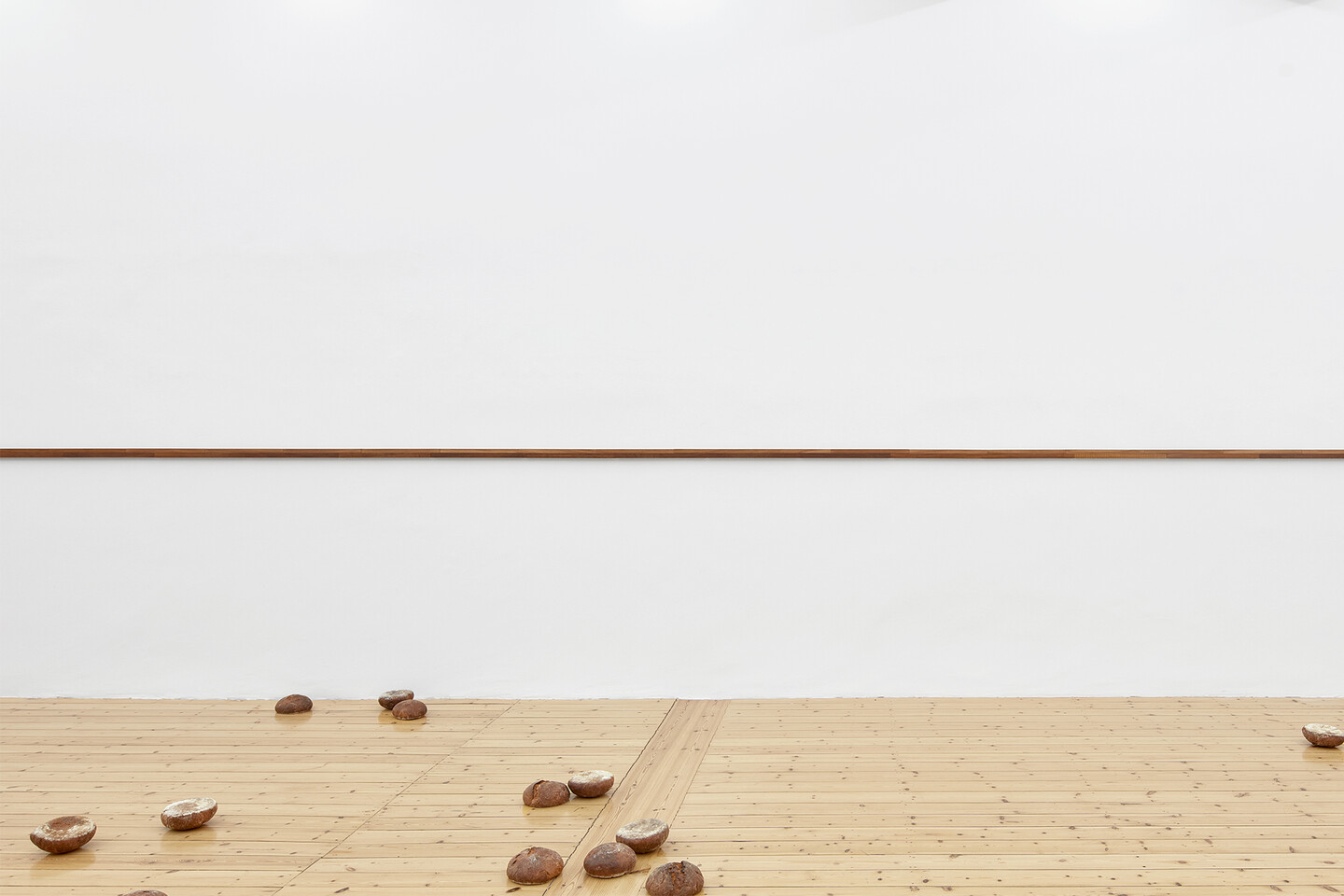
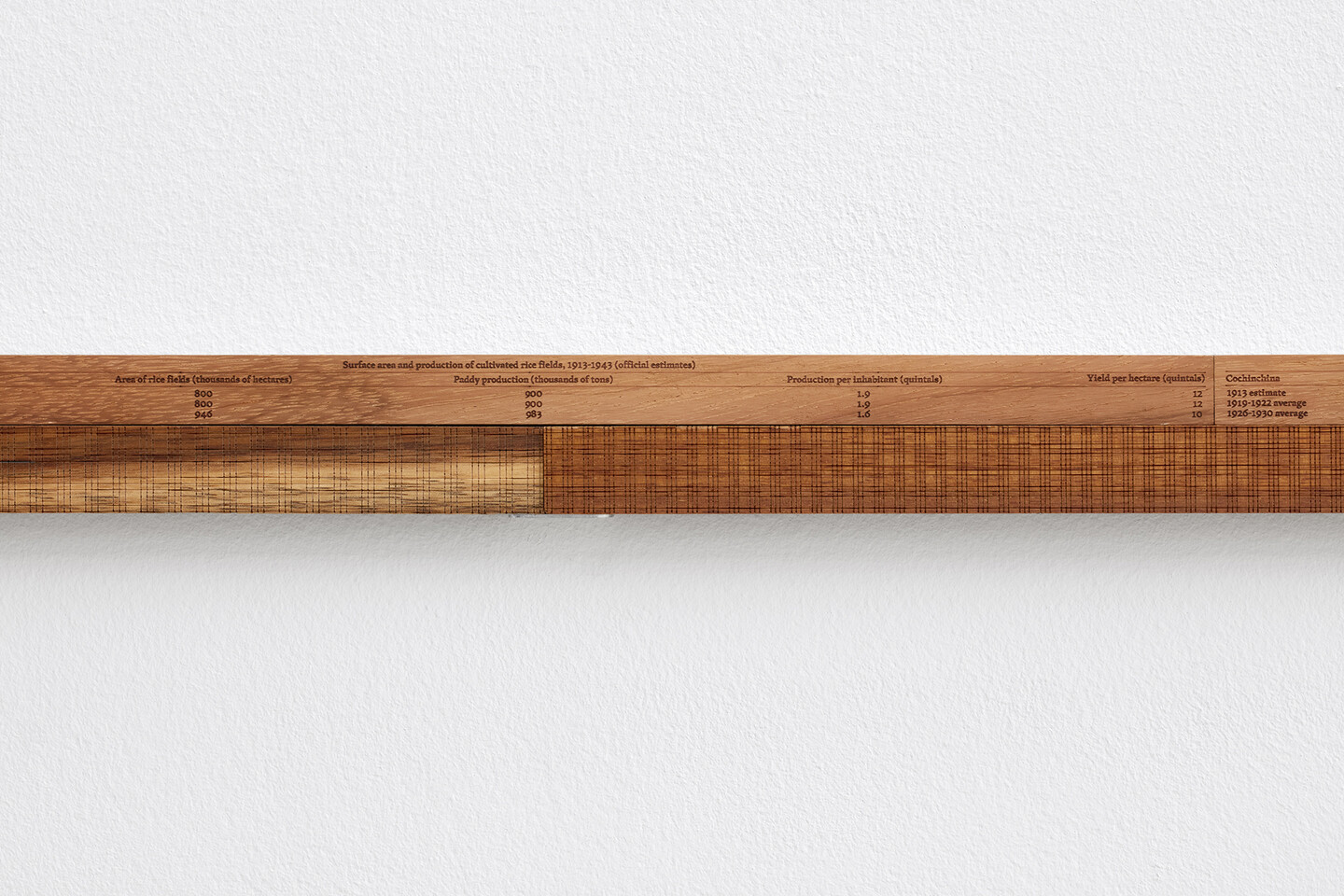
25 × 47 cm long rulers, 25 × 47cm long rulers, two kinds of wood, laser engraved costume brackets, 1+1 AP
The French administration implemented various other strategies globally to advance its interests, such as using monopolies camouflaged as public policy. In Vietnam, for instance, authorities restricted local alcohol production to generate revenue through sales taxes and gain control over the market, limiting local economic independence and reinforcing social control. Predictably, a black market emerged, with women often smuggling banned goods hidden in baskets of vegetables, petrol jerrycans, or wine flasks strapped beneath their clothing.
Where 7 cm was taken for the rulers, Tieu symbolically returns 7 cl of alcohol, embedding it in loaves of bread scattered across the gallery floor. This gesture can be seen as an act of subtle rebellion, restitution, and a tribute to generations of lost heritage—most pointedly, a symbolic defiance against lingering post-colonial structures.
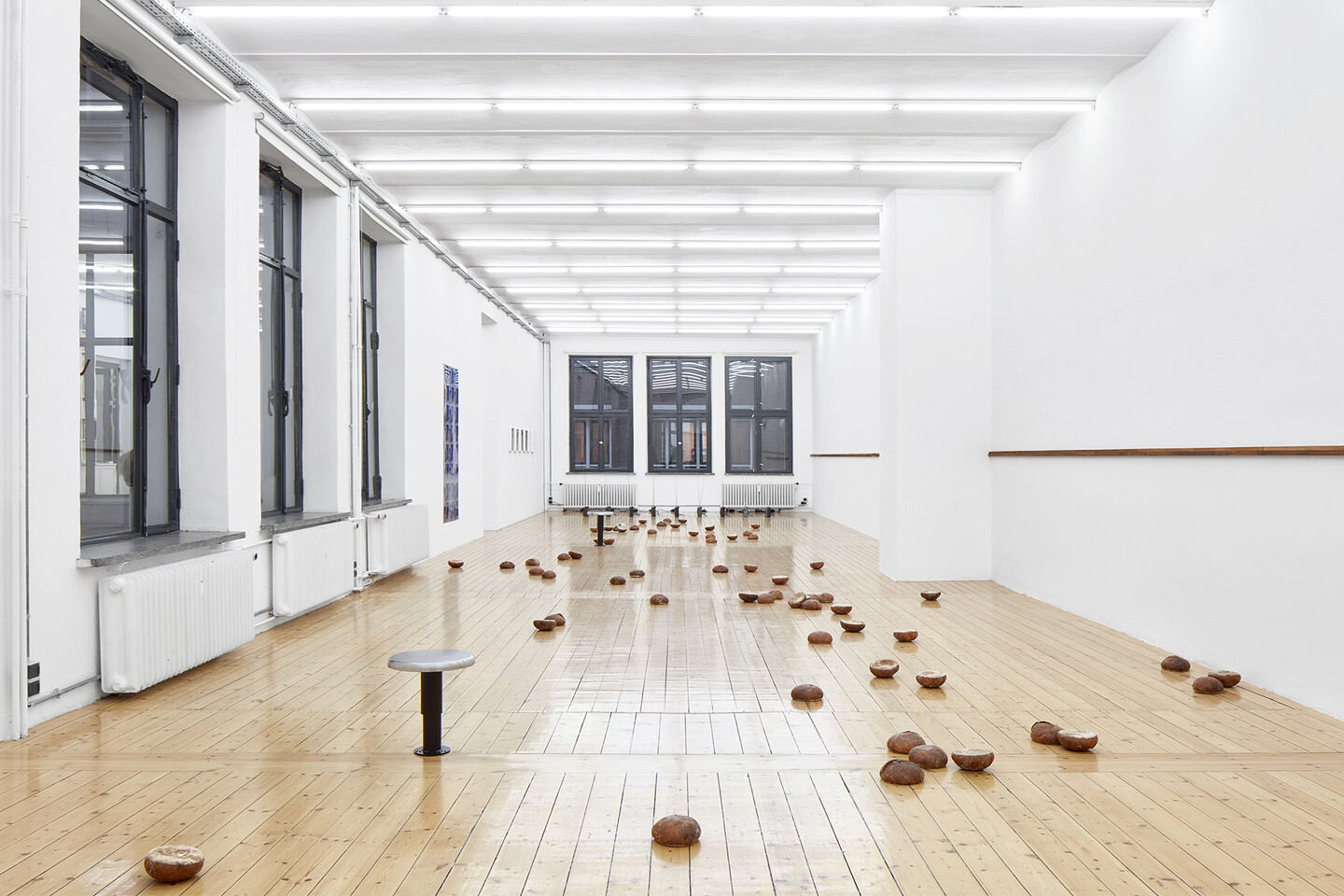
As the child of a Vietnamese contract worker who migrated to the GDR in 1987, Tieu often reflects on themes of factory labor. The exhibition connects footage from the Lumière Brothers’ 1899/1900 film, showing children leaving the Meffre & Bourgoin brick factory in Hanoi under the watchful eye of a French colonial officer, to objects crafted by Vietnamese workers in 1980s East Germany. Among these are nine radios lined up on the gallery floor, tuned to a frequency that plays the artist’s sound work. As the radios fill the space with industrial sounds, the black-and-white photographs titled (Un)kraut reference the fate of the contract workers deemed “superfluous” after German reunification, whose recruitment agreements were terminated. These works reflect the enduring experiences of racism and exclusion faced by the Vietnamese community that has remained in Germany to this day.
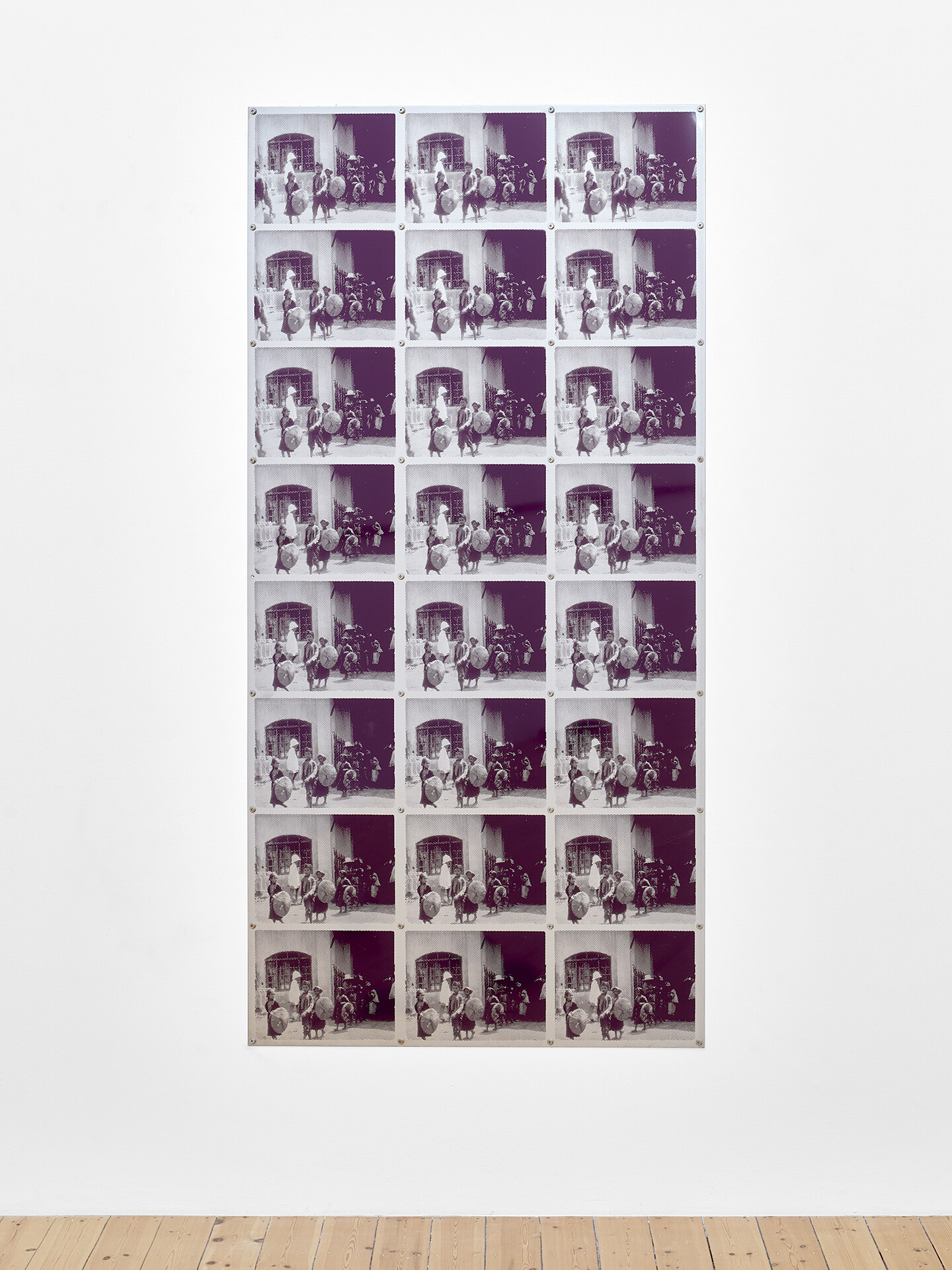
silkscreen on auliminium, 200 × 100 cm
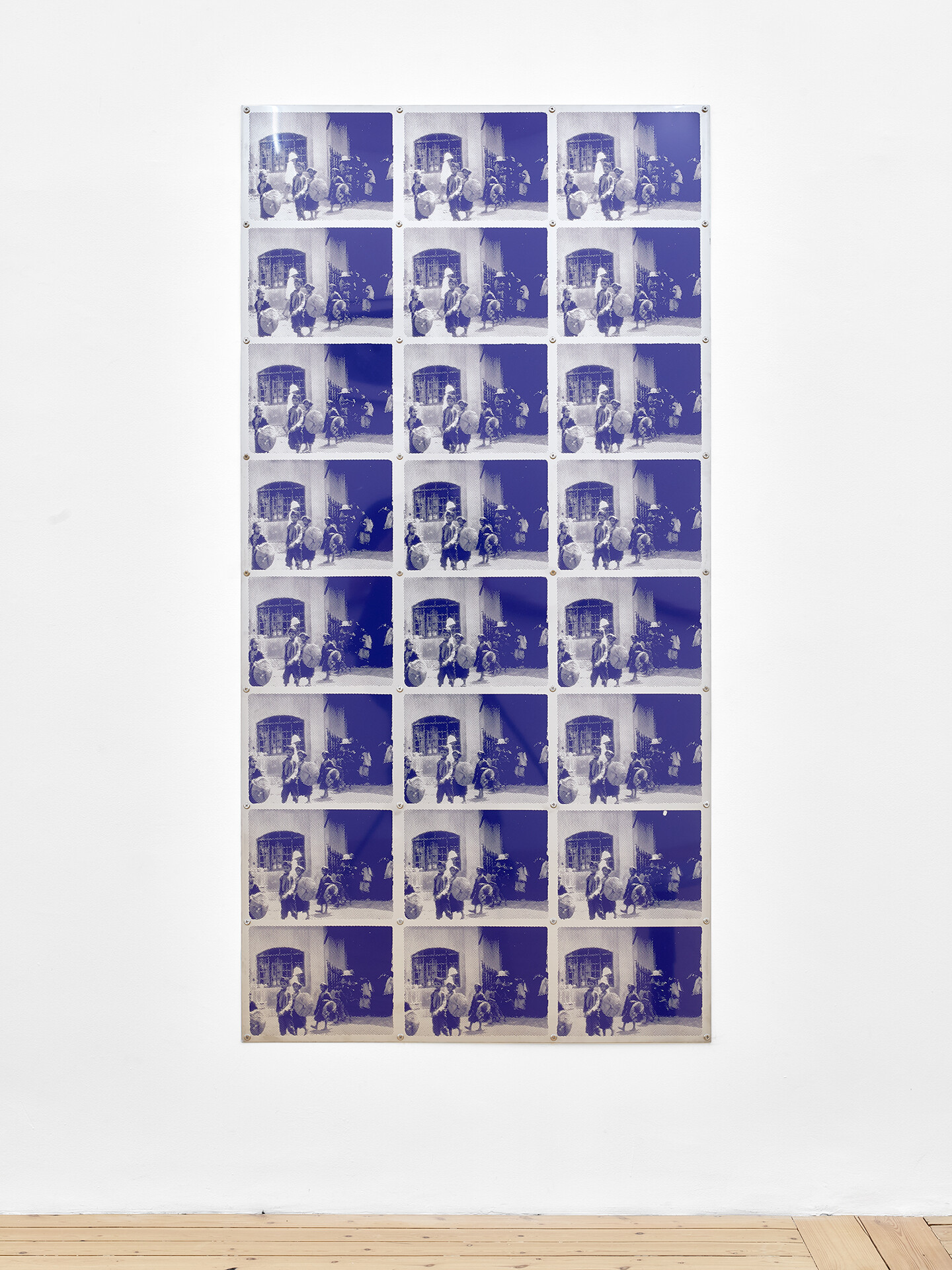
Silkscreen on aluminium, 200 × 100 cm
The Benchmark interrogates the double standards intrinsic to colonial rule and their far-reaching effects. By intertwining historical events with contemporary reflections on migration and labor, Tieu urges us to confront the ongoing inequities of post-colonial systems—not only in terms of economic exploitation but also in the psychological and social frameworks that continue to shape our present.
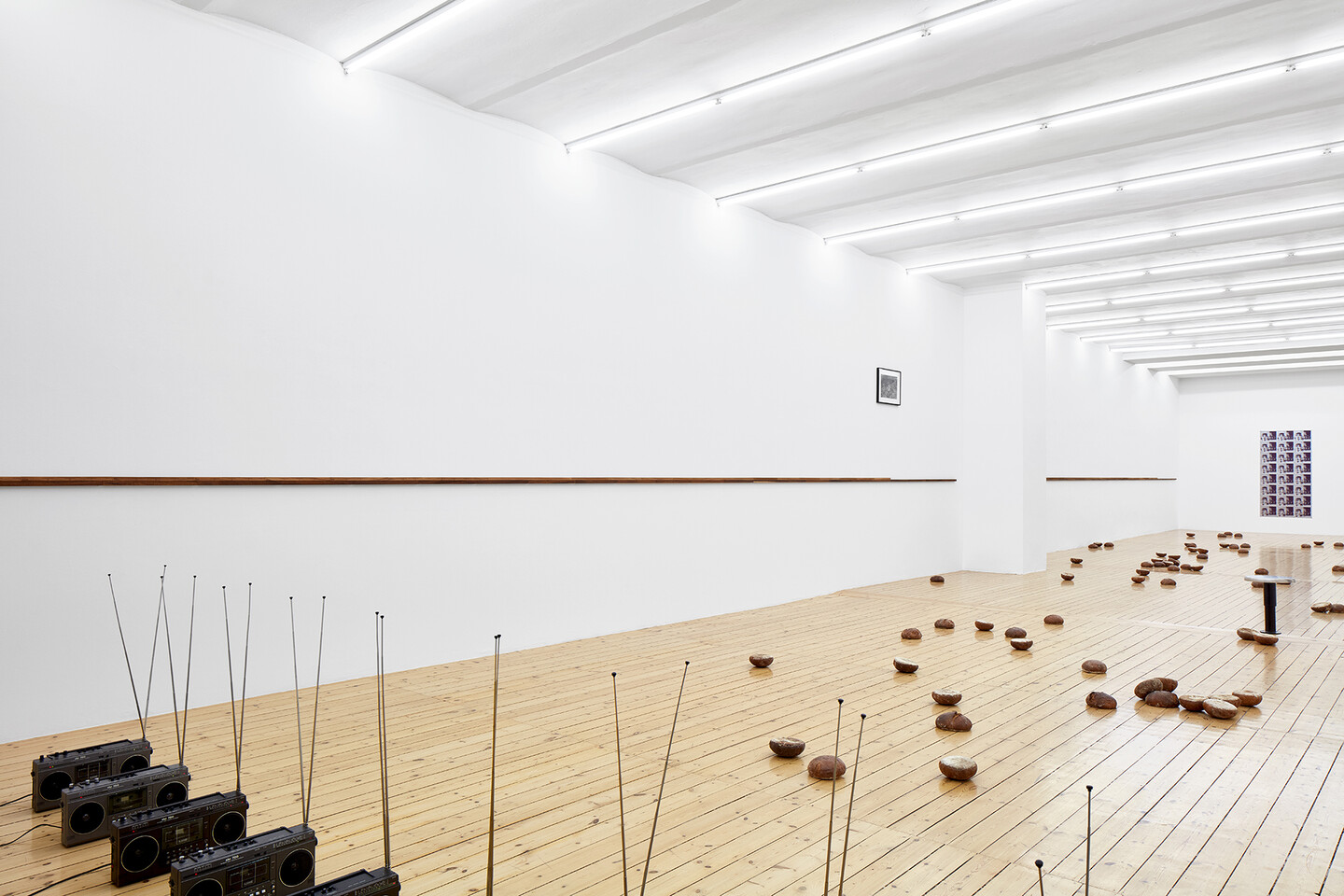
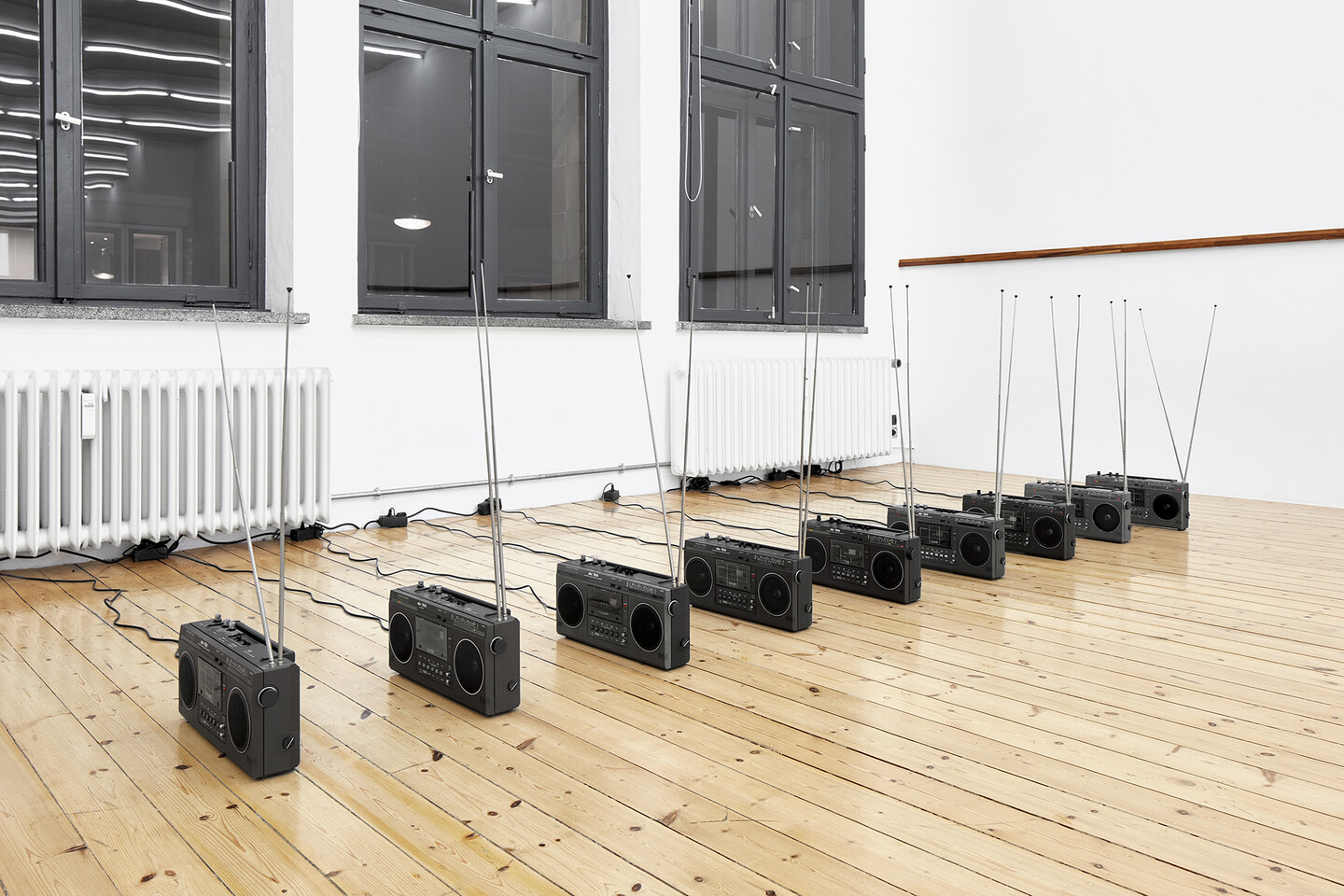
30:00 min stereo sound, looped 9 radios from VEB Stern-Radio Berlin
With the Flower Plaids series, Tieu sources plastic flowers and presents them in frames, using traditional Vietnamese checkered textile as a backing. Questioning the hierarchy of value that’s imparted by social norms on such mundane objects, she also considers the originality of the forms as the artificial flowers never replicate nature exactly. The leaves, colors or proportions often diverge from reality, following the imagination of their producers to become fantastical daisies, lilies, or roses.
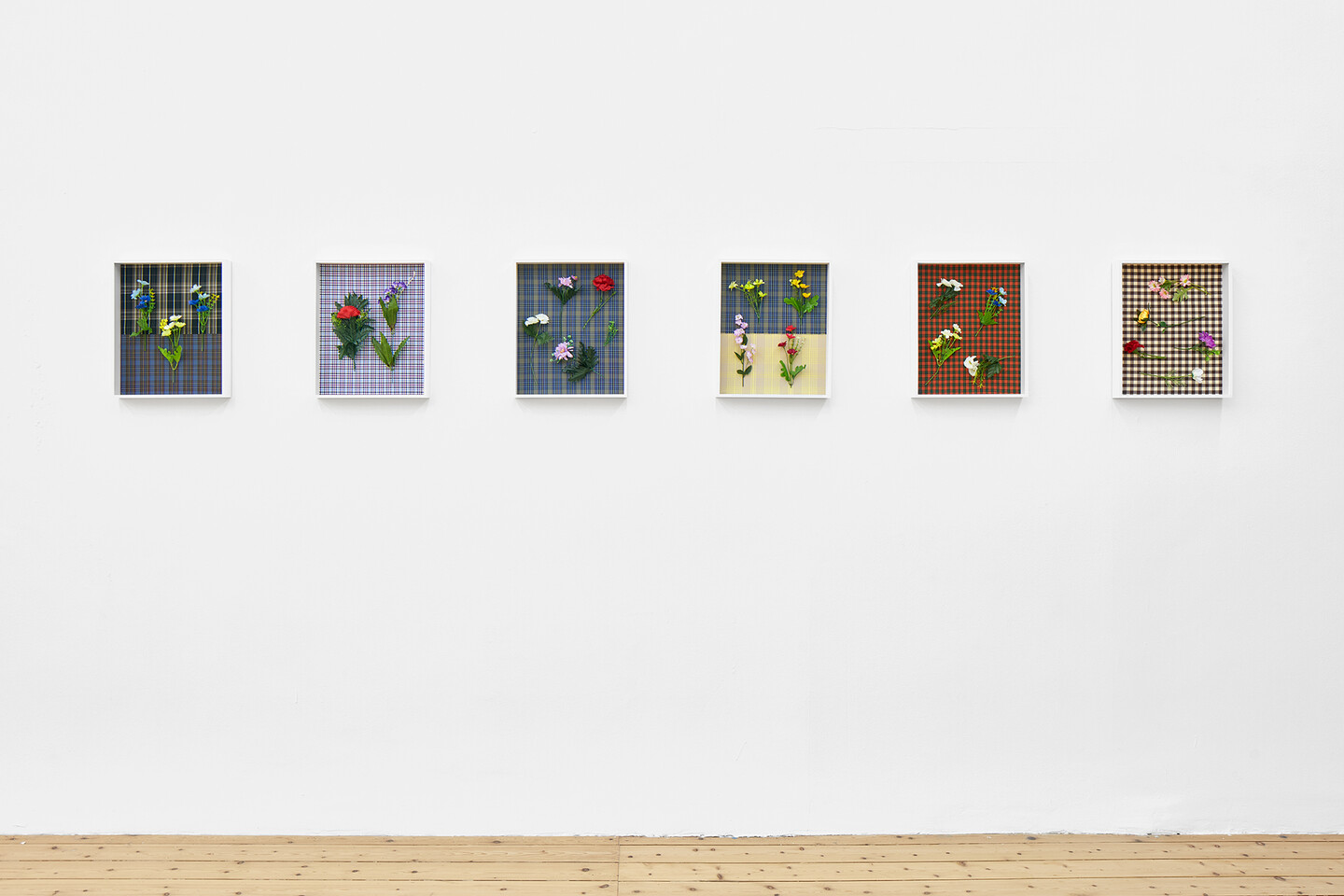
fabric, platic flowers, framed, 40.5 × 33.5 × 5 cm
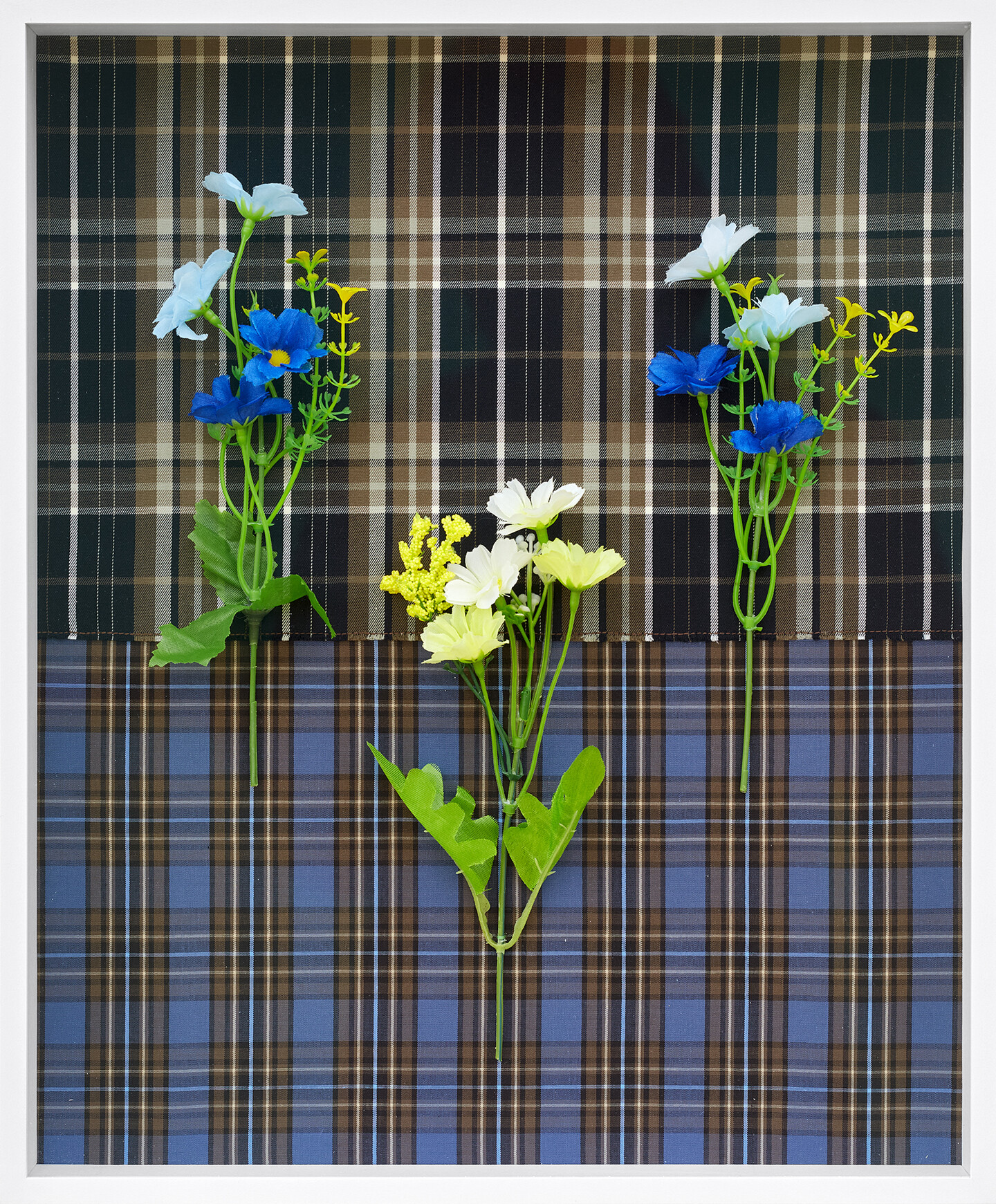
fabric, platic flowers, framed, 40.5 × 33.5 × 5 cm
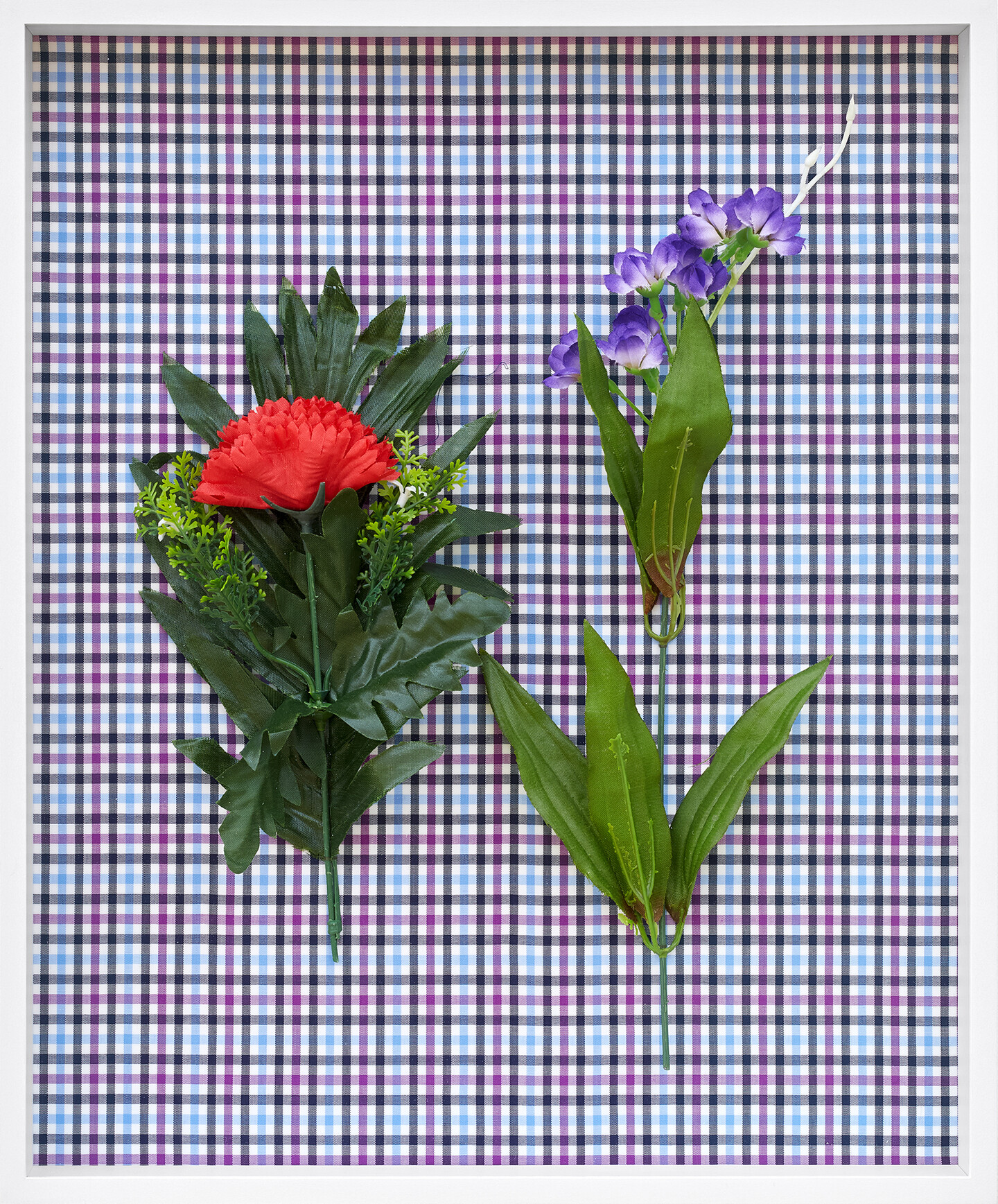
fabric, plastic flowers, framed, 40.5 × 33.5 × 5 cm
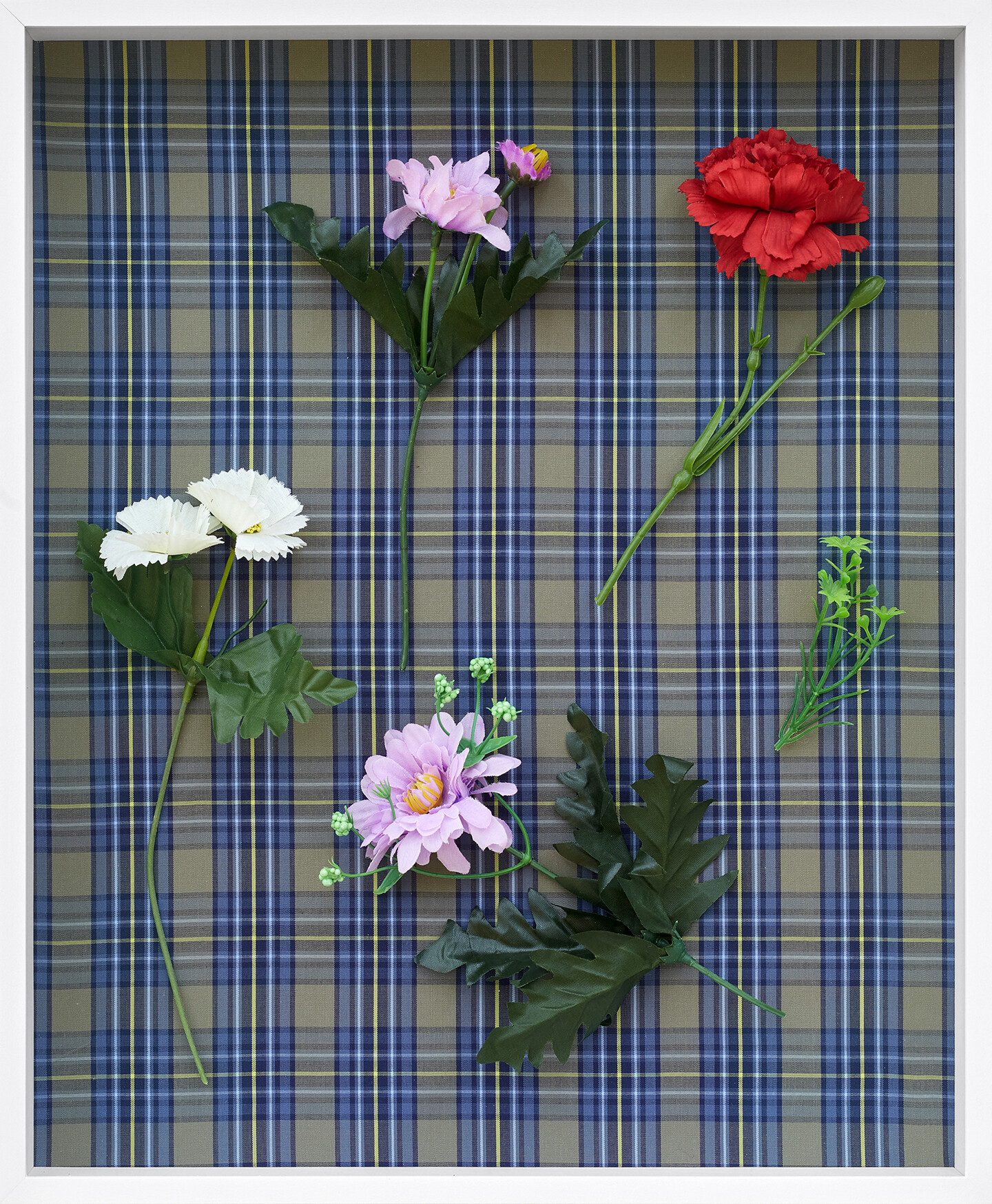
fabric, plastic flowers, framed, 40.5 × 33.5 × 5 cm
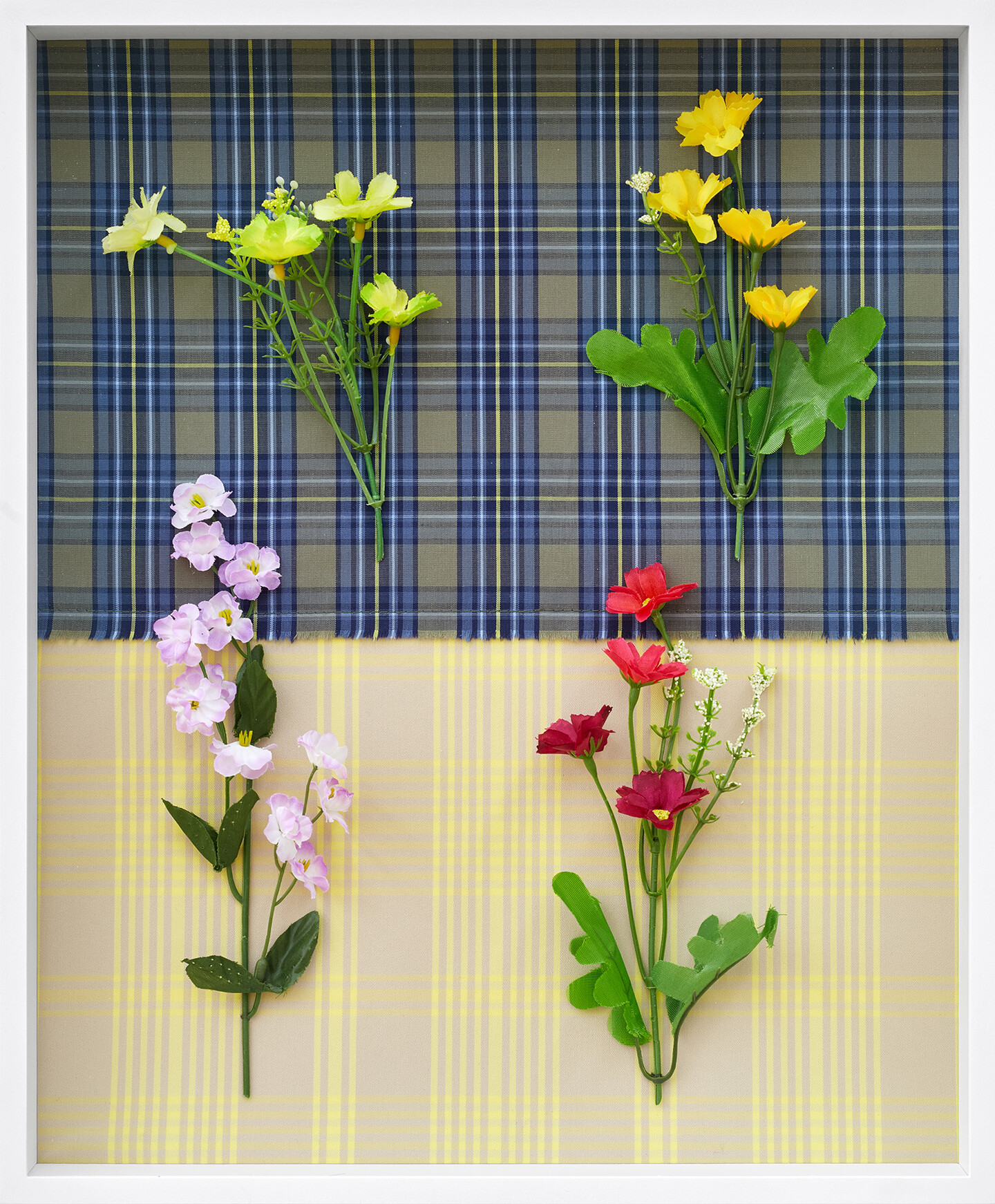
fabric, plastic flowers, framed, 40.5 × 33.5 × 5 cm
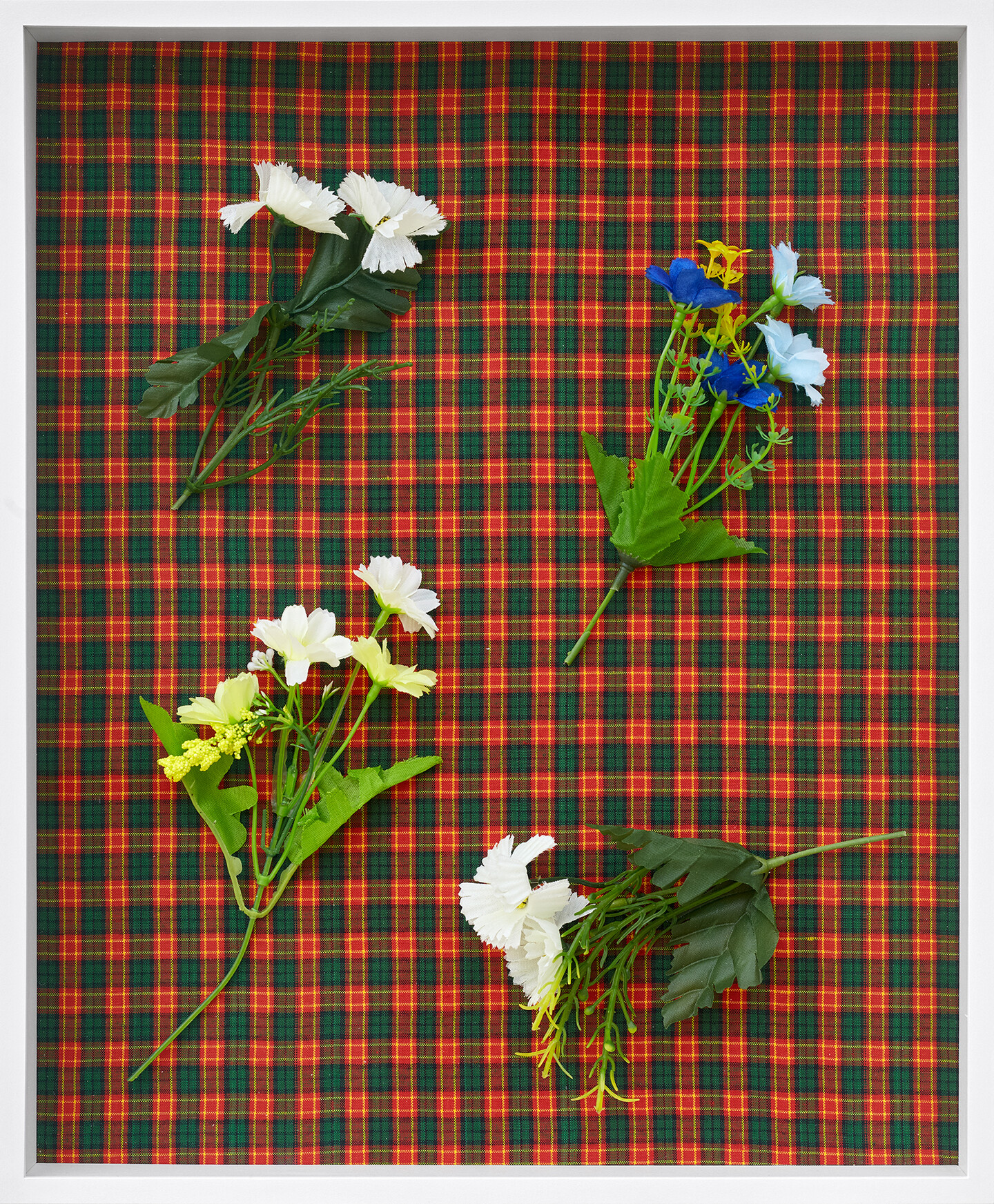
fabric, plastic flowers, framed, 40.5 × 33.5 × 5 cm
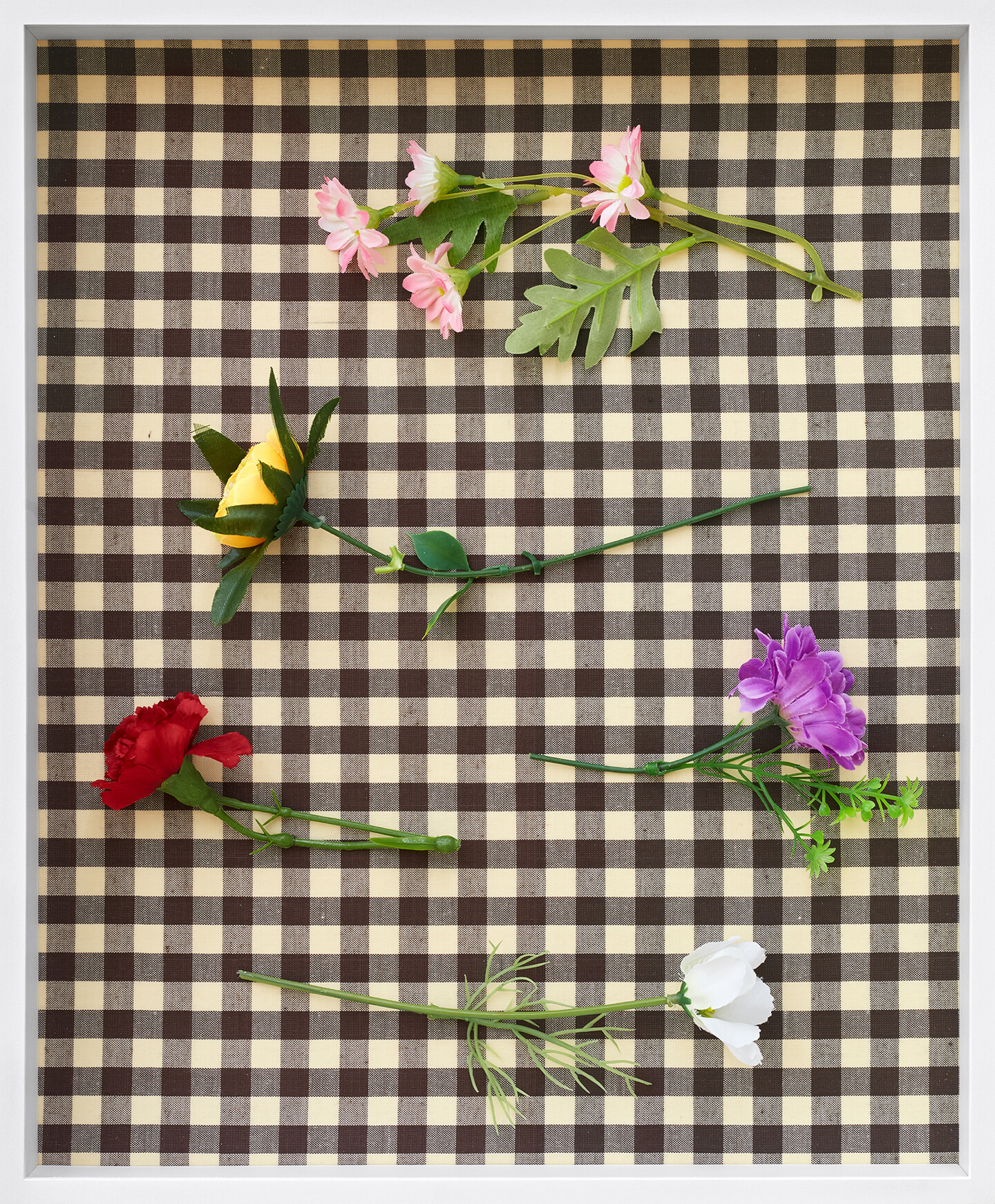
fabric, plastic flowers, framed, 40.5 × 33.5 × 5 cm